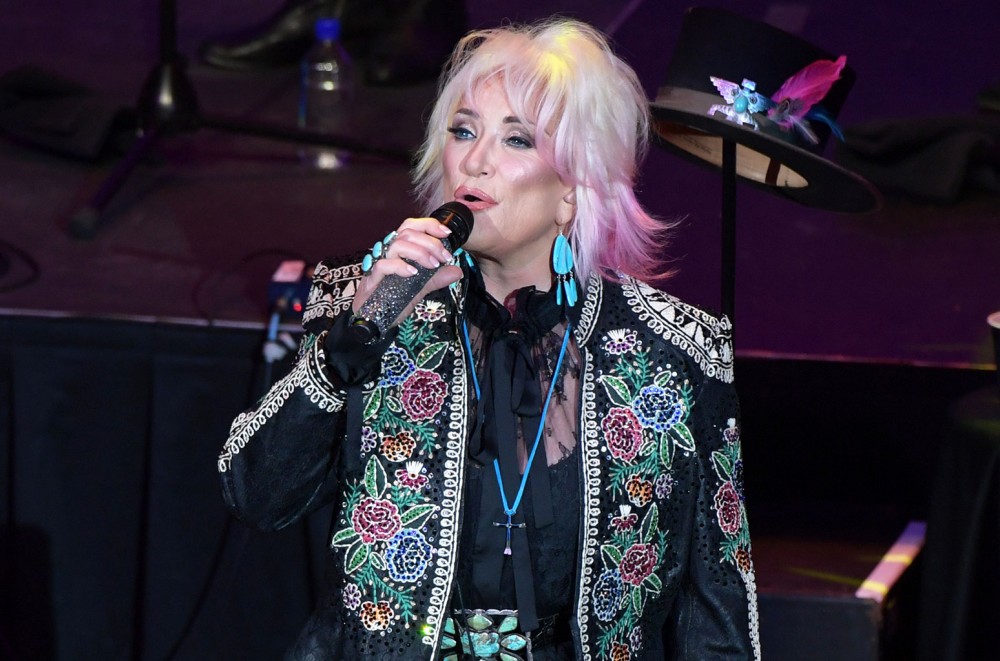Everything in moderation.
That ancient advice usually focuses on restraint, but it also suggests a balancing act. It's an ideal that undergirds country music's presence on the 62nd annual Grammy Awards ballot. Finalists will be recognized Jan. 26, with the show airing on CBS.
Country veterans Tanya Tucker and Reba McEntire are balanced among the finalists by newcomers Ashley McBryde and Tyler Childers. Glossy duo Dan + Shay counters rough-edged rebel Eric Church. Reliable hitmaker Blake Shelton shares ballot space with critical darlings Pistol Annies.
Nashville is represented by a mix of ages, flavors and styles among its nominees. And, at a time when country radio and streaming playlists are under fire for under-representing women in their programming, there's a healthy gender balance among Grammy finalists. That remains true despite a new complaint filed by ousted Recording Academy president/CEO Deborah Dugan that charges representatives of the organization with sexual harassment and discrimination.
Despite that executive controversy, the academy's ballot represents country in a manner similar to a good 401(k) portfolio: Voters invested in a range of music, maintaining the kind of balance that individual artists often seek in their own repertoire.
"I think your songs need to be as different as your artists are," says songwriter Bobby Pinson, who co-wrote Church's best country song nominee "Some of It." "And I think your artists are different at times than they are on a different day."
The Grammys are often populated by songs of weight and importance, more so than the media that often exposes the music. Tucker's "Bring My Flowers Now," with its stark acceptance of mortality, brings power and clarity to the song of the year category. Little Big Town's "The Daughters," with a thoughtful eye toward gender parity, is a fiercely significant cultural statement up for best country duo/group performance. And the Maren Morris and Brandi Carlile collaboration "Common," with its gentle recognition of political polarization, calls listeners to meet in the middle when it's most important.
Most of Nashville's creative community hopes to balance both meaning and money. And it's that idealist belief that music can change the world that often informs the Academy's nominations process.
"It really comes down to just making great music, music that is important, music that says something, music that touches people," says chapter board president Jennifer Hanson, a singer-songwriter in her own right ("Beautiful Goodbye," "Country Strong"). "A lot of the songs and albums recognized this year do that."
Though it's easy to get caught up in the gravitas of the typical Grammy nomination, the Academy's ballot is never all social commentary and big life statements. Miranda Lambert's breezy "It All Comes Out in the Wash" is a finalist for best country song in 2020, throwing a little levity against those more overtly deep topics. Billy Ray Cyrus' collaboration with Lil Nas X, "Old Town Road," may not be changing the world, but it's still catchy enough to merit a record of the year nomination.
"When's the last time you mentioned Billy Ray Cyrus and Grammys in the same sentence?" asks Cyrus rhetorically. "It was 25 years ago. So for me, this is the greatest time of my life. I never dreamed that I'd get to ride this ride again and see the power of a song very similar in its own way to ‘Achy Breaky Heart.'"
"Achy Breaky" was, of course, an intentionally goofy piece. Don Von Tress purposely wrote it with a bare-bones riff and a singsong melody, and it became a controversial part of country music's history, a multiplatinum success story that many in the business despised. It was extraordinarily simple, not all that different in that respect from the uncomplicated "three chords and the truth" that formed country's foundation or from the high-energy beats that signaled a musical revolution in the '1950s and '60s.
"Everybody in the business right now owes Chuck Berry and Carl Perkins and Elvis and The Beatles, all these guys that was on the crown age of rock'n'roll," says Cyrus.
In fact, most artists who've achieved some sort of longevity have done so with a mix of good-time simplicity and meaningful music. Brooks & Dunn and Luke Combs, who share a nomination for best country duo/group performance with a new version of "Brand New Man," have both built their identities on that all-important balance. Combs' ballad "Beautiful Crazy" offsets the thump in "Beer Never Broke My Heart." Brooks & Dunn's tear-inducing "Believe" inspires the soul while the grinding "Rock My World (Little Country Girl)" motivates the feet.
On occasion, an act such as Pistol Annies even finds ways to pair light-sounding audio with provocative lyrics. Lambert and her bandmates, Ashley Monroe and Angaleena Presley, are up for best country album with Interstate Gospel, continuing their tradition of biting, white-trash satire.
"It's just making light of the truth a little bit," says Lambert, while the band cites John Prine and Roger Miller as inspirations. "We write a lot about real hard things, but it's OK to have humor in that. It's the only way to survive some of it."
That balance of surface amusement and deep observation might be the best way to look at the breadth of the titles and the creative talents that country — and Nashville at large — supplied to this year's Grammy list. The hypnotic sweetness in Thomas Rhett's "Look What God Gave Her" — the first single from his best country album nominee Center Point Road — provides a light optimism in a period where it's easy to feel heavy. By contrast, For King & Country's collaboration with Dolly Parton, "God Only Knows," explores the dark secrets and broken spirit that punctuate nearly everyone's journey. In the running for best contemporary Christian music performance/song, it's an inward-facing title that encourages the listener — sonically and in the accompanying video —to find balance with the outer world.
"Putting out the videos has allowed me to find a lot more grace for myself and for other people," says songwriter Josh Kerr ("Dibs," "My Girl"), who co-wrote it. "It is hard to think someone might be going through something that I'm not aware of], because it's easy to make life all about me, me, me, me, you know. And that's kind of a step out and a challenge to be better and be more aware."
It's part of the balancing act that great music, Grammy-worthy music, encourages.


